Van MOT Failures
Turn Your MOT Failure into Instant Cash! Sell Your Van Hassle-Free. MOT Failure Vans: We Buy Any Van, Any Condition. Get Top Dollar for Your Troubled Van Today!
Attention, all van owners! Are you facing the issue of MOT failures with your van? We have a fantastic solution for you. If you’re considering selling your van, we’re interested! We buy many vans and would be more than happy to purchase yours from you.
Dealing with a van that has failed its MOT test can be quite a hassle. From the necessary repairs to the expenses involved, it can become a burdensome task. But worry not, because we’re here to alleviate your worries.
Regardless of the reason behind your van’s MOT failure, whether it’s related to the brakes, suspension, exhaust, or any other component, we want to hear from you. We buy vans in any condition, even those that have failed their MOT tests.
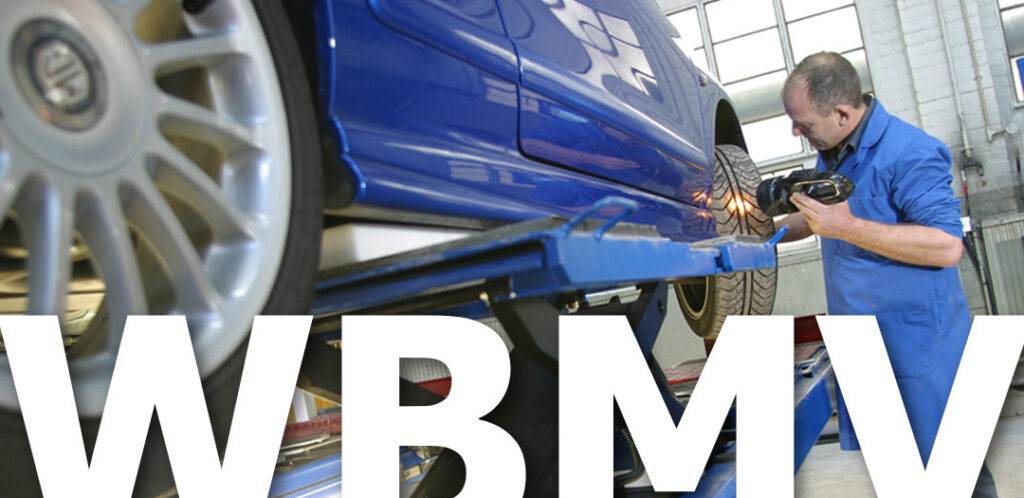

Why go through the hassle of repairing and retesting your van when you can simply sell it to us? We take care of all the paperwork, ensuring a smooth and convenient transaction. Our aim is to make the process as stress-free as possible for you.
To top it off, we offer competitive prices for vans, ensuring you get a fair deal without the need for negotiation. So, if you’re looking to sell your MOT-failed van, look no further! Contact us today, and we’ll make you a great offer.
Understanding the Causes of MOT Failure in Vans
The MOT test is an annual requirement for all vehicles over three years old, including vans. Unfortunately, the failure rate for van MOTs tends to be higher than that of cars. In fact, according to recent statistics, almost half of all vans fail their first MOT test. This can be costly and time-consuming for van owners who need to rectify any issues before they can legally drive on the road again.
There are many reasons why a van may fail its MOT inspection. Some common causes include faulty brakes or suspension systems, worn tyres or lights that are not working properly. Other potential problems could include emissions issues or structural damage to the vehicle’s bodywork.
It’s important for van owners to take proactive steps in maintaining their vehicles throughout the year in order to avoid any unexpected failures during their annual MOT inspection. Regular checks on key components such as brakes and tyres can help identify any potential issues early on so they can be addressed before they become major problems leading up to an upcoming mot test date.
Here are some common causes of MOT failure in vans:
• Faulty brakes or suspension systems
• Worn tyres that do not meet the legal tread depth requirements
• Lights that are not working properly, including indicators, brake lights and headlights
• Emissions issues such as high levels of pollutants being released from the exhaust system
• Structural damage to the vehicle’s bodywork, including rust or corrosion
To avoid these problems and ensure your van passes its MOT inspection, it is important to perform regular maintenance checks throughout the year. Here are some tips for maintaining your van:
• Check your brakes regularly to make sure they are functioning properly.
• Inspect your tyres for wear and tear on a regular basis and replace them when necessary.
• Test all lights before driving to make sure they are working correctly.
• Keep up with regular oil changes and other routine maintenance tasks recommended by your manufacturer.
• Address any signs of rust or corrosion immediately.
By taking these steps, you can help prevent unexpected failures during an MOT inspection. This will save you time and money in the long run while also ensuring that you stay safe on the road.
Common Reasons Why Vans Fail their MOT Inspection
Common Van Faults: One of the most common causes of van MOT failures across the UK is faulty brakes. The failure rate for this particular issue is high, with many vehicles being taken off the road due to worn brake pads or discs. It’s important to have your brakes checked regularly and repaired as soon as possible if any issues arise.

Another frequent cause of van MOT failure is problems with tyres. This includes inadequate tread depth, uneven wear, and damaged sidewalls. To avoid this issue, it’s essential to check your tyres regularly and replace them when necessary.
Electrical faults are also a significant contributor to van MOT failures in the UK. From broken lights to malfunctioning indicators, these issues can lead to serious safety concerns for both driver and passenger alike. Regularly checking your vehicle’s electrical system can help prevent these types of failures from occurring in the first place.
The Top Common Causes of MOT Failure in Vans
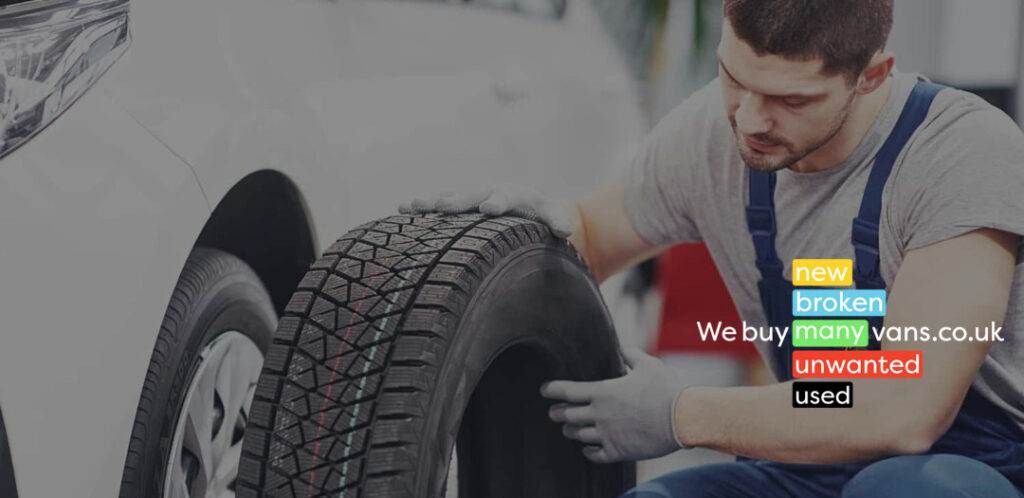
One of the most common causes of MOT failure in vans is faulty lighting and signalling. This can include issues with headlights, brake lights, indicators, and reversing lights. It’s important to regularly check all of these components to ensure they are working properly before taking your van for its MOT inspection.
Another frequent cause of van MOT failures is worn or damaged tyres. The minimum legal tread depth for tyres in the UK is 1.6mm across the central three-quarters of the tyre, so it’s crucial to check this regularly and replace any tyres that fall below this threshold. Additionally, make sure there are no bulges or cuts on your tyres as these can also result in a failed MOT.
Finally, problems with brakes and suspension systems often contribute to high rates of van MOT failure. Faulty brakes can be dangerous on the road and will almost certainly lead to an MOT fail if not addressed promptly. Similarly, suspension issues such as worn shock absorbers or broken springs can also result in an unsuccessful inspection outcome. Regular maintenance checks should help prevent these types of issues from occurring but it’s essential to address them quickly if they do arise.
Sell Your Van In Three Easy Steps
Hassle-Free Selling Process
01.
Get a quote
02.
Schedule a pickup
03.
Get paid
What to Check When Owning a Van to Avoid MOT Failure
When owning a van, it is important to regularly check for any faults that could potentially cause the vehicle to fail the MOT inspection. One of the most common causes of MOT failure in vans is faulty brakes. Drivers should ensure that their brake system is working properly and replace any worn-out brake pads or discs.
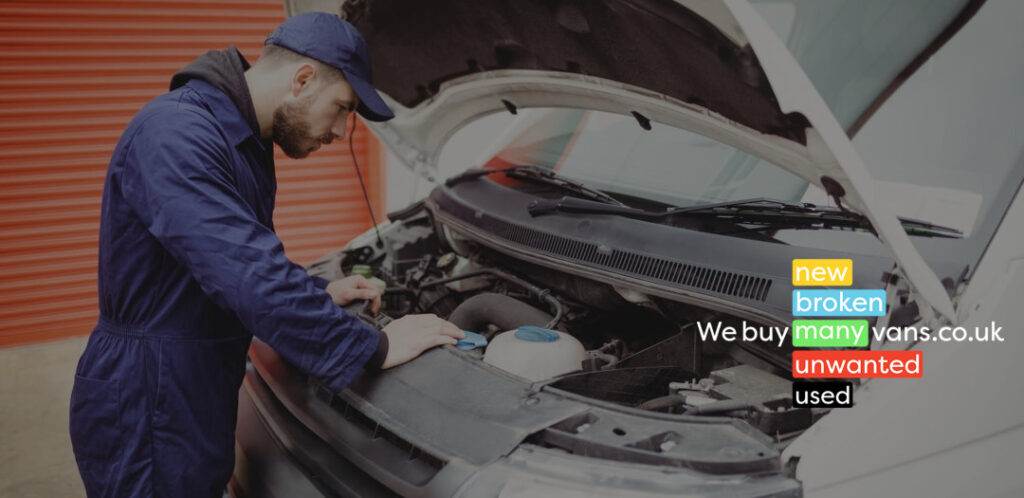
Another crucial aspect to check when avoiding MOT failure in vans is the condition of the tyres. It is illegal to drive with tyres below the minimum tread depth requirement, so drivers must make sure their tyres are within this limit before going for an MOT inspection. Additionally, checking tyre pressure and ensuring they are inflated correctly can also prevent failures.
Suspension issues can also lead to an MOT failure in a van. Drivers should inspect their suspension components regularly and replace any damaged parts promptly. Faulty steering systems, lamps, reflectors and other electrical problems may also cause a commercial vehicle to fail its annual test; thus, these areas should be checked thoroughly during routine maintenance checks.
The Annual MOT and What It Means for Van Drivers
The annual MOT inspection is a legal requirement for all vehicles in the UK, including vans. As a van driver, it is important to understand what this means for you and your vehicle. The MOT test checks various components of your van to ensure that they meet minimum safety and environmental standards.
Owning a van comes with the responsibility of ensuring that it is roadworthy. This includes regular maintenance and repairs as needed. Before taking your van for its annual MOT inspection, it is important to check certain components such as the brake system, tyres, exhaust system, hub bearings, reflectors and electrical problems.
One common cause of MOT failure in vans is issues with the brake system. It is essential that brakes are functioning properly to ensure safe driving on the roads. Tyres also play an important role in road safety and should be checked regularly for wear and tear or damage. Reflectors and electrical problems are often overlooked but can also lead to MOT failure if not functioning correctly. By conducting regular checks on these components throughout the year, drivers can reduce their chances of failing their van’s annual MOT inspection due to these issues.
How to Repair MOT Failures in Vans

When it comes to rectifying MOT failures in vans, it is important to identify the top 10 causes of van MOT failures. These include faults with brakes, suspension, bulbs, and steering components. It is also common for vans to fail due to low fluid levels or worn tyre treads.
| No. | Cause of MOT Failure |
|---|---|
| 1 | Faulty brakes |
| 2 | Suspension issues |
| 3 | Bulbs not functioning |
| 4 | Steering components malfunction |
| 5 | Low fluid levels |
| 6 | Worn tyre treads |
| 7 | Faulty exhaust system |
| 8 | Inoperative windshield wipers |
| 9 | Issues with seatbelts |
| 10 | Defective emissions |
If you own a van and want to avoid MOT failure rates, make sure you thoroughly check your vehicle before taking it for its annual MOT test. This includes verifying that all lights are functioning correctly, ensuring tyres have sufficient tread depth, and checking for any defects in the suspension or steering system.
To address any issues discovered during an MOT test, it is essential to take your van to a reputable mechanic who can diagnose the problem and perform necessary repairs. In some cases, used vans may require more extensive work than others due to their age or previous road use. However, by addressing any defects early on, you can reduce the likelihood of failing future MOT tests.
Ensuring Your Van Passes the MOT Inspection: Brake, Tyre and Suspension Checks

When it comes to passing the annual MOT inspection, there are several key areas that van drivers need to pay attention to. One of these areas is the brake system. If your van fails this part of the test, it could be due to worn brake pads or discs, leaking fluid, or damaged hoses. Regular checks and maintenance can help ensure that your brakes are in good condition for the MOT.
Another important aspect to consider is the tires. Your van’s tires should have a tread depth of at least 1.6mm across three-quarters of their width and around the entire circumference. Additionally, they must be free from any cuts or bulges that may cause them to fail during the inspection. Don’t forget to check your spare tire as well!
Lastly, it is crucial to inspect suspension components such as shock absorbers and springs before taking your van for its first MOT after it turns three years old (and every year thereafter). Make sure all parts are securely attached and not excessively worn or corroded, as this could lead to failure on the day of inspection. Also, ensure that the driver’s view through the windshield is not obstructed by any cracks or chips on the glass surfaces, including lamps, reflectors, and the number plate. This is especially important when driving a large commercial vehicle where visibility can be restricted at times.
Remember: failing an MOT can result in costly repairs and inconvenience for drivers. So, take some time out now, ahead of the upcoming inspections in the next few months. Do what you can yourself, such as checking brakes, tires, suspension components, lamps, etc., and perform minor repairs if needed. Then, book an appointment with a reputable garage when necessary, so they can give you the best chance of ensuring a pass rate!
Maximising MOT Success: The Vital Role of Reflectors and Electrical Systems

Ensuring the presence and good condition of reflectors is paramount during an MOT inspection for older vans. These reflective devices play a crucial role in enhancing visibility for your van during night-time or low-light driving conditions.
Furthermore, it is imperative that all electrical systems, including headlights, windscreen wipers, and the washer fluid dispenser, are in proper working order.
Volkswagen vans are particularly susceptible to bodywork corrosion due to wear and tear over time.
This can lead to failures during an MOT inspection if not addressed beforehand. It’s important for van drivers who own a Volkswagen model across the UK to regularly check their vehicle’s bodywork for rust or damage, as this could cause compliance issues with reflectors or electrical wiring.
If your van has failed its MOT due to problems with reflectors or electrical equipment, don’t panic! The first step is always identifying what caused the failure so you can take appropriate action.
A common reason for these failures is corrosion on metal parts of the van, such as nuts and bolts holding the lights in place. This is especially true for older models that have been exposed more frequently than newer ones.
Fleet Operators Beware: Common MOT Failures for Commercial Vehicles
Commercial vehicles are subject to the same MOT inspection as any other vehicle on British roads. However, fleet operators should be aware of some common reasons why commercial vehicles fail their MOT inspection. One such reason is faulty brakes and suspension systems, which can pose serious safety hazards for both the driver and passengers.
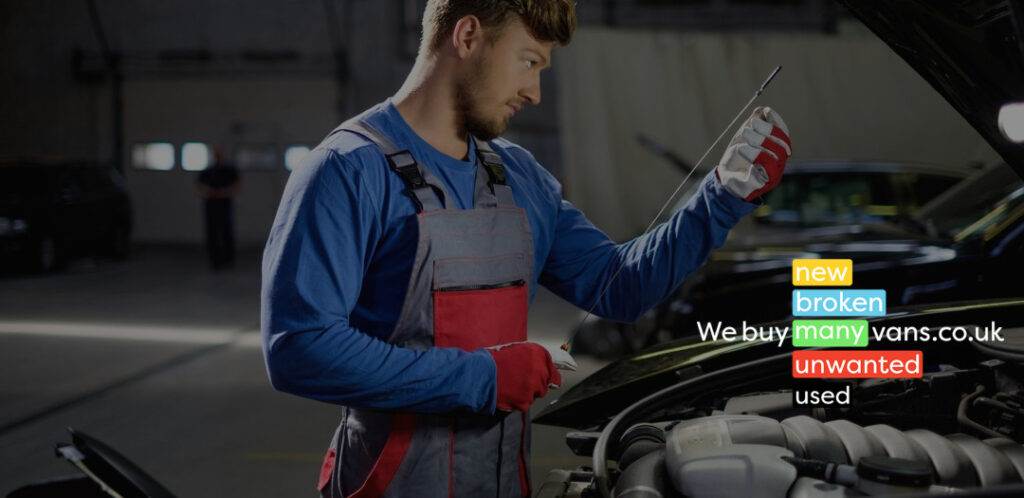
Another frequent cause of MOT failure in commercial vehicles is a faulty handbrake or steering wheel. These components play a crucial role in ensuring the safe operation of the vehicle, and any faults could put drivers at risk of accidents on the road. Additionally, malfunctioning registration plates and indicators can also result in an MOT failure.
Fleet operators must keep these common causes of MOT failure in mind when maintaining their commercial vehicles. Regular checks on brake pads, washer fluid levels, and any leaks under the vehicle can help uncover potential issues before they become major problems during an MOT inspection. By remaining vigilant about maintenance needs throughout the year, fleet operators can potentially save themselves significant costs associated with failed inspections when testing time arrives.
Dealing with MOT Failures: Sell Your Van to We Buy Many Vans
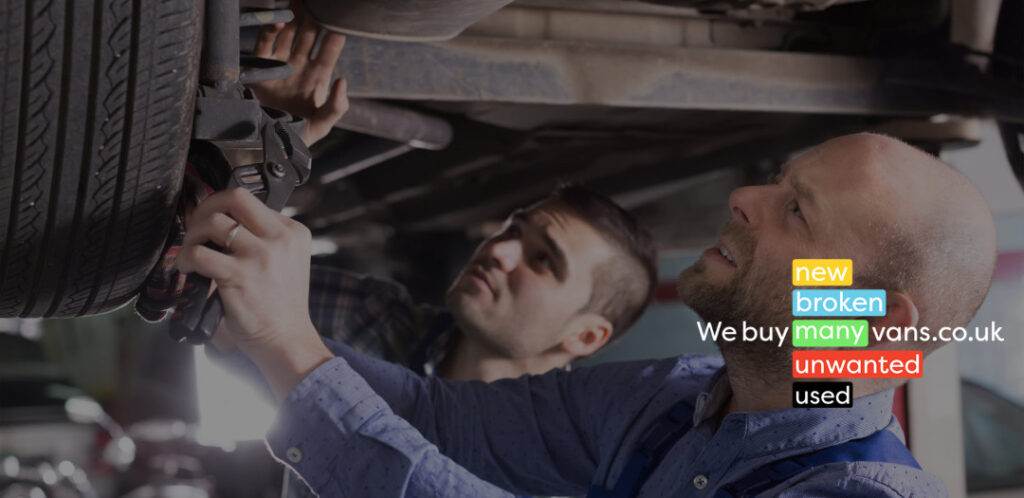
One of the most common reasons for MOT failure in vans is emissions. If your van fails its MOT due to high levels of emissions, it might be the right time to consider selling it and upgrading to a newer model with improved emission control technology. At We Buy Many Vans, we accept all types of vans, even those that have failed their MOT due to emission issues. Sell your van to us hassle-free!
Another area that can cause issues during an MOT inspection is the font size on your number plate. The UK government has strict regulations regarding the size and style of font used on number plates. Make sure to check this before taking your van in for the test. If you fail the inspection due to this issue, don’t worry – we’ll still purchase your van from you. We buy vans with number plate font size problems too!
Reflectors and the electrical system (wiring loom) are also crucial factors when it comes to passing an MOT inspection. Ensure that all reflectors are clean and undamaged, as they play a vital role in ensuring visibility for other drivers at night or in low-light conditions. Additionally, make sure the electrical system, including the wiring loom, is in good condition. Faulty or damaged wiring can lead to MOT failures. Take care of your van’s electrical system for a successful MOT!
As fleet operators are well aware, keeping up with changing regulations and maintaining the electrical system of their vehicles can be challenging. That’s where a broker like We Buy Many Vans comes into play. Our dedicated team will handle everything from valuation to sale completion, providing expert advice along the way. With us, fleet operators can focus on running their business without worrying about the logistics of vehicle disposal. Sell with confidence!
Van MOT Failures Frequently Asked Questions
An MOT inspection is an annual test that assesses whether a vehicle meets the necessary safety and environmental standards to be legally driven on the roads.
Some common causes of MOT failure in vans include faulty brakes, worn tyres, defective headlights, and damaged suspension systems.
To avoid MOT failure in your van, it’s important to regularly maintain and service your vehicle. This includes checking your brakes, tyres, lights, and suspension system, as well as ensuring your reflectors and electrical equipment are working properly.
If your van fails its MOT inspection, you’ll need to get the necessary repairs done before you can legally drive your vehicle again. You can take your van to a reputable garage for the repairs, or you can sell your van to We Buy Many Vans if you don’t want to deal with the hassle.
We Buy Many Vans offers a quick and hassle-free way to sell your van, even if it has failed its MOT inspection. We’ll give you a fair price for your vehicle and take care of all the paperwork and other details so you don’t have to worry about a thing.
No, you don’t need to have a valid MOT certificate to sell your van to We Buy Many Vans. We’ll buy your van regardless of its condition or whether it has passed or failed its MOT inspection.
Selling your van to We Buy Many Vans is quick and easy. We’ll give you a fair price for your vehicle and complete the sale as soon as possible, often within just a few days.
Sell Your Van Today to We Buy Many Vans
Addressing the top 10 causes of van MOT failures is crucial for ensuring a successful MOT test. By thoroughly checking your van’s brakes, suspension, bulbs, steering components, fluid levels, and tyre treads, you can identify and resolve any issues before the test. It’s important to take your van to a reputable mechanic who can diagnose and repair any defects found during the MOT inspection.
At We Buy Many Vans, we understand that sometimes vans fail their MOT tests. That’s why we offer a solution for van owners facing MOT failures. We are willing to buy your van from you, regardless of its MOT status. So, if your van has failed its MOT, don’t worry.
You can still sell it to us and avoid the hassle of dealing with repairs and retesting. We make the process simple and convenient, providing a reliable option for van owners in need of selling their vehicles with MOT failures.
Take advantage of our services and contact us today. We Buy Many Vans is here to help you with your van, even if it has failed its MOT.
Van Troubleshooting Guide: Common Problems from Fuel Pumps to MOT Failures
Here’s the list of van problems in order from most common to least common:
- Fuel Pump Problems
- ECU Problems
- Fuel Injector Problems
- Turbo Engine Problems
- DPF Problems
- Wiring Loom Problems
- Oil Pressure Problems
- Differential Problems
- MOT Failure Vans
- Timing Chain Problems
- Engine Warning Light
- Gearbox Failure
Please note that the order may vary depending on various factors such as the specific van model, maintenance practices, and driving conditions. This list is a general representation of common van problems but may not reflect the exact frequency of occurrence in all cases.